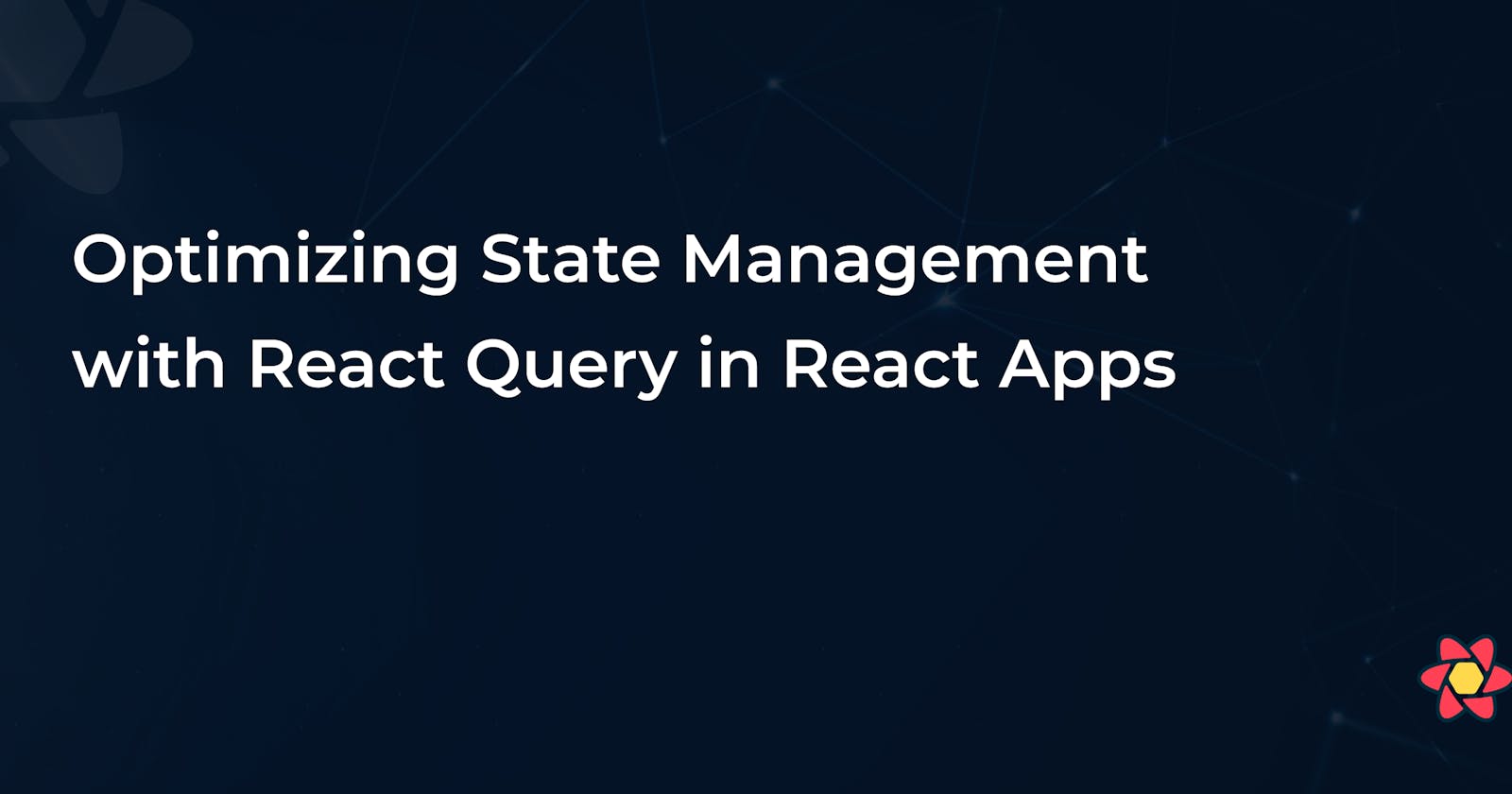Optimizing State Management with React Query in React Apps
Managing and Fetching Data in React Applications: An Introduction to React Query
State Management is a very important concept to understand when working on a React application. State is typically a way to keep track of information that your app needs to remember. Whereas State management refers to the process of storing, updating, and using variables that represent the state of the app.
In this article, we will be introducing an effective server-side state management tool that can be used in your future React projects.
What is React Query?
React query is a popular library for managing and fetching data in a react application. It is designed to be simple, lightweight and very easy to use, making it a great choice for developers who want to manage their application's state without the complexity of a fully-featured library like Redux. Unlike other state management libraries, react query is much more effective in handling server state.
Let us look at how to implement react query in a react project and discuss some of the benefits it offers over other state management alternatives.
Implementing React Query in a React project
To get started with react query, you'll first need to install it in your react project. You can do this by running the following command in your terminal.
npm install react-query
yarn add react-query
Next, you'll need to wrap your root component with the QueryClient() provider. This is a higher-order component that provides the queryClient object to all of your components which you'll use to manage all your queries.
Let's take a look at a typical example in the code snippet below:
import { QueryClient, QueryClientProvider } from 'react-query';
const queryClient = new QueryClient();
const App = () => {
return (
<QueryClientProvider client={queryClient}>
<CatsFactExample />
</QueryClientProvider>
)
}
Now that you have set up the QueryClient, you can use the useQuery hook to fetch data in your components. The useQuery hook takes an options object as an argument, which you can use to specify the query key, the query function, and any other options you want to pass to the hook.
import { useQuery } from 'react-query';
const CatsFactExample = () => {
const { data, isLoading, error } = useQuery("cats", () =>
fetch("https://catfact.ninja/fact").then((res) => res.json())
);
if (isLoading) {
return <div>Loading...</div>;
}
if (error) {
return <div>Error: {error.message}</div>;
}
return (
<div>
<p>{data.fact}</p>
</div>
);
}
Benefits of React Query
There are several benefits to using React Query for state management in your react applications. Some of the key benefits include:
Simplicity: React Query has a straightforward API and a small codebase, making it easy to use. Because of this, it's a fantastic option for developers who want to manage the state of their application without having to deal with the complexity of a library with more features, like Redux.
Performance: React Query is optimized for performance, with features like automatic cache management and the ability to cancel queries when the component unmounts. This can help to improve the user experience in your application by ensuring that data is fetched efficiently and without unnecessary delays.
Flexibility: React Query has several options and configuration settings that let you tailor its functionality to your needs, making it incredibly adaptable. For instance, you may manually refresh the data using the
refetchfunction or display a loading indicator while the data is being fetched using theisLoadingproperty. If the fetch fails, you can also utilize theerrorproperty to show an error message. This makes it a wonderful option for developers that wish to have precise control over the state management of their applications.
CONCLUSION
Overall, React Query is a powerful and lightweight library that makes it easy to manage and fetch data in a React application. It offers a simple and intuitive API, excellent performance, and a high degree of flexibility, making it a great choice for developers. You can also check out the react query documentation to assist you further in getting started.
If you found this article to be very helpful, do endeavor to follow me on my social media handles on Twitter, Linkedin, and GitHub.
